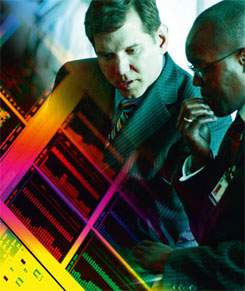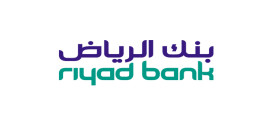 SWIFT, the Society for Worldwide Interbank Financial Telecommunications, has revolutionised the way banks and corporations communicate with each other. In this exclusive interview for Cash & Trade, SWIFT’s Regional Head, MENA , Sido Bestani, speaks frankly about how the global financial crisis has affected his organisation and explains what measures it is taking to provide for the needs of customers in the Middle East and North Africa.
SWIFT, the Society for Worldwide Interbank Financial Telecommunications, has revolutionised the way banks and corporations communicate with each other. In this exclusive interview for Cash & Trade, SWIFT’s Regional Head, MENA , Sido Bestani, speaks frankly about how the global financial crisis has affected his organisation and explains what measures it is taking to provide for the needs of customers in the Middle East and North Africa.
Corporate treasurers are looking to diversify their risk, especially given the financial turmoil of the past 18 months. What can they do to achieve this?
Some of their banks are using secure means of communications in emails or in certain applications. But others are using channels which are not secure, which are not standard. That’s where we come in.
SWIFT provides communications between companies and the bank in a secure and standardised network. It provides the means for these corporates to get real-time availability of their cash, of their funds, through something which is also more secure, instead of using email or faxes which are not really secure. Because of this crisis, some large corporations here in the Middle East are looking to reduce this corporation risk and to have better means of communications with their banks.
Some of the most important global banks in cash management, such as Citicorp and RBS, have fallen on hard times. How has this affected demand by corporations and large companies for global transaction banking?
What SWIFT is providing is a means of communications which will allow secure and more standardised ways of communicating. So the financial crisis does affect us. Our SWIFT traffic, which is where we get our revenue, is decreasing.
It is decreasing?
Absolutely. Growth for the past ten or 15 years has been around 10 or 15 % a year, but for the first time in SWIFT’s history, because of the crisis, SWIFT traffic has decreased. Last year it fell by 5 %. This is the first time we have had a decrease. So it does have an impact, but that’s not only focussed on what’s going on with Citi and RBS. It is the general financial crisis.
To get back to corporate treasurers, because of all the turmoil, obviously they feel they have to diversify their risk as much as possible. If, for example, they’ve been depending for their cash management or trade finance services on one particularly big bank, say Deutsche Bank or JP Morgan, how can they diversify their risk? Can SWIFT help them by enabling them to deal with more than one bank?
SWIFT is not in the business of saying which corporates need to work with which bank. That is their own business. What we provide is a pipeline, a standard and secure pipeline. Most of the large corporations usually use multi-banks. They have a relationship with two, three, four or even 20 banks. That is how they diversify and reduce their risk. What we have seen is that you can minimise your risk by using a pipeline which is common to all these banks and which allows you to have something secure. SWIFT is secure and standardised, and this obviously will help to avoid manual processing, increase automation and straightthrough processing (STP), etc.
Banks using the same pipeline can add services to their corporate customers and also increase the automation rate, STP, etc. In other words, it is automated from one end to the other. STP means, for example, that if you send a fax, you have to process it manually, with a human being. You have to process the instruction manually. Whereas if you are using a standard, if you are a bank, and you receive a message which is a standard, that message can be processed by a machine, by a back-office application. It can do what is necessary. Therefore you are reducing your risk. So some of these banks can benefit by using SWIFT as a common pipeline for their corporate customers.
You are talking here about for the larger corporates. As you know, in the Middle East, aside from many large holding companies, there are a lot of smaller, privately-owned family firms, as well as smaller banks. Some of these may have a relationship with several banks, but many may not. How can SWIFT help these firms?
That’s a good point. Indeed, there is a difference between, let’s say, the Western and European market and the one in the Middle East. But in the Middle East, too, you still have some large corporates for whom it makes sense to use SWIFT for all the reasons I’ve just mentioned, ie. to go for something more secure and more standardised. These large corporates, whether family owned, or whether they are like Aramco, RasGas, the Kuwait Petroleum Company or Qatar Telecom, etc. may have a relationship with local banks, but also with international banks. For these corporates, it makes sense to think about SWIFT connectivity.
Today we have, more or less, 20 corporates in the Middle East which are connected to SWIFT. Two or three years ago we had only around five. So the ball is rolling. There is interest growing in the region, and also for some of the local large banks to have SWIFT as a pipeline.
You say ‘the local, large banks.’ Are you talking about those which are international like, for example, HSBC ? Or are you talking about banks like the National Bank of Abu Dhabi or other indigenous banks?
I’m talking about the local large ones, banks like the Emirates National Bank of Dubai, the National Bank of Abu Dhabi, Emirates Bank, Qatar National Bank, the large ones in Saudi Arabia, like Al Rajhi bank. These are large banks that provide services to the large corporates. Therefore it makes sense for them to provide the SWIFT pipeline. What we have been doing for the past two to three years since we opened the office in Dubai is to raise this awareness among the banks, the local banks, and then, with their help, to raise this awareness among the large corporates…. Because the benefit is mainly for the large corporates. The good thing is that the ball is rolling. At the same time, because of the financial crisis, some of them are thinking about having SWIFT as something mandatory, so that they can reduce both their operational risk and their overall risk.
 Technology is advancing rapidly, particularly in cash management and trade finance. I know that SWIFT provides software to banks which is proprietary. What kind of technology or software are you able to provide specifically for Middle Eastern clients?
Technology is advancing rapidly, particularly in cash management and trade finance. I know that SWIFT provides software to banks which is proprietary. What kind of technology or software are you able to provide specifically for Middle Eastern clients?
All the products and services which are available at SWIFT are available to the 208 countries that we serve. It is the same from one country to another. What we mainly provide is a secure network. This is why SWIFT is known throughout the world, for the more than 8,000 financial institutions that are connected. It is also about the standards and the key messages. You have 250 types of messages, or standards, that cover payments. which allows you to go for automation, for increasing STP.
What type of messages?
These are standard messages which can be integrated into back-office applications. We have three types of messages in the payments area, in the treasury area, in the securities area and in the trade area. It is really broad so that the institutions can use it. This is the basis of SWIFT. At the same time, SWIFT is trying to provide more support to its communities, because you need to remember that SWIFT is a co-operative. It is owned by the users. They are the shareholders.
You are based in Belgium. And you have more than 8,000 banks?
We have more than 8,000 financial institutions. Among these you have banks, but you also have other financial institutions like asset managers, brokerdealers, custodians, administration, etc. Overall, it is actually 8,800 financial institutions in 208 countries.
You mentioned that now that you are based in Dubai, you are looking at how the regional market operates?
Yes. This is one of the reasons that we opened the local office. SWIFT is a small company, with just 2,000 people working for it. At the same time, we are providing our service to more than 8,000 financial institutions. So by opening local entities, we try to be closer to these institutions, to make them aware of what is going on in SWIFT, and to provide them with the right support. At the same, we give time to making sure that they are using or that they can benefit from the existing SWIFT intrastructure, that they can leverage it, perhaps by introducing corporate connectivity, but also through other projects that we have in the pipeline, like workers’ remittances. This is something which is on the SWIFT agenda, to provide the community with a way to automate these type of payments, which are very much present in the region. We provide also other tools, like matching tools, like tools for the foreign exchange market…different types of tools which might not be applicable for all institutions, but will be for some. We just want to make sure that they are aware of it and that they can get the most out of SWIFT’s services.
 Cash And Trade Magazine For Cash and Trade professionals in the Middle East
Cash And Trade Magazine For Cash and Trade professionals in the Middle East




